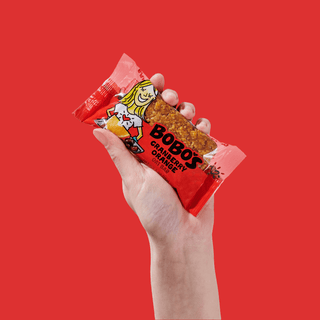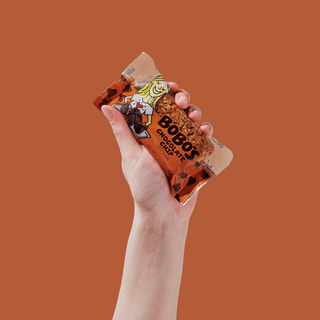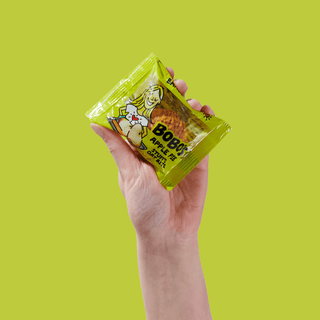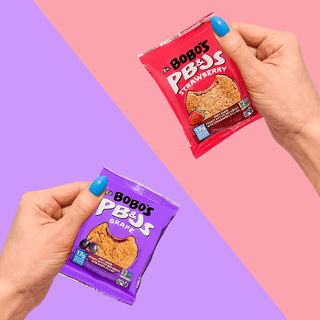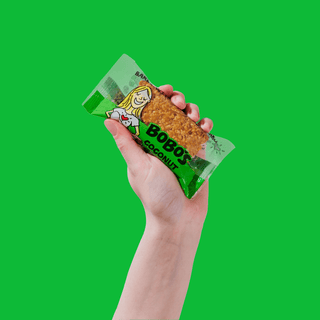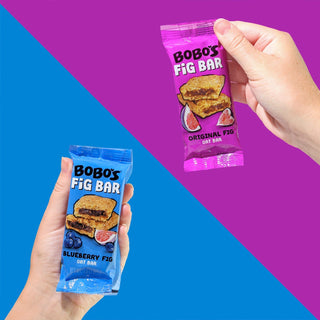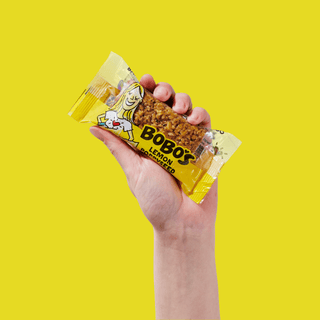By Emma Caplan-Fisher
The snack foods we eat between meals are often thought of as processed, high-calorie, convenient options like cookies and potato chips. But, snacking on the right foods in moderation can absolutely be a healthy choice.
If you find you snack mindlessly or aren't quite sure if you're making the healthiest choices with your snacks, you're in the right place. Here, we'll explain what that means along with the pros and cons of snacking, some examples of healthy snack foods, and when and how much to snack is ideal. You'll also learn to understand why you're snacking and ensure you're snacking with your health in mind moving forward.
Can snacking be healthy?
Snacking between meals can be good for us, as long as we're aware of and carefully considering why we want to snack, what we want to enjoy, when we plan to have it, and how much we plan to eat. Specifically:
Why? If you snack often, consider whether you're actually hungry or simply eating based on emotion — we tend to eat when we're bored, upset, tired, or stressed. If the latter, there are better strategies you can use to avoid snacking, like meditation, going for a walk, or reading a book.
What? Ask yourself which snack foods will be most satisfying and choose from those. Satisfying means it will fill the hunger gap (foods high in water and fiber will fill you up quicker than those without), be tasty, and get your mind off food until mealtime. And, be sure you're selecting what you truly crave, or you may end up eating more than intended.
When? Think about the course of your day and decide which times are ideal to snack between meals. Then, be sure to stick to them.
How much? Remember, your snack portion should be enough to curb that hunger pang but not make you so full that you lose your appetite at mealtime or consume too many calories. Generally, you should aim for about 150-250 calories per snack.
Pros of snacking
Snacking in between meals offers:
- An energy boost if you go several hours between meals and you have a drop in blood glucose levels.
- Extra nutrients from certain snack foods, like nuts or fruit.
- Sufficient nutrition for those with a lower appetite or who don't eat full, balanced meals (including because of an illness).
- Appetite suppression which helps to avoid overeating at mealtime.
Cons of snacking
On the other hand, be sure to watch out for:
- A smaller appetite at mealtimes or even meal skipping altogether, which makes it more likely to miss out on key nutrients your body needs.
- Weight gain from extra calories if snack frequency or portions are too much.
- Altered diet quality and eating habits if you tend to regularly consume processed snacks low in nutrients and high in calories or added sugar, salt, and/or fat.
What foods make healthy snacks?
We often go for snacks based on what we're craving — whether it's something sweet, salty or savory, crunchy, or creamy. The good news is there are healthy, nutritious, and satiating snacks in all of these categories, like the following:
- Sweet: fresh fruit, dark chocolate
- Salty or savory: cheese, nuts or nut butter, roasted chickpeas
- Crunchy: raw vegetables, nuts, apples, plain popcorn, whole grain crackers, seeds
- Creamy: yogurt, cottage cheese, avocado, hummus
Overall, whole foods with fiber, protein, and whole grains, like yogurt, nuts, or popcorn, tend to be both healthy and satisfying.
When is it ok to snack between meals?
There is no right or wrong time of day to snack, as everyone has different lifestyles and needs. That said, here are some general guidelines about optimal snacking times.
Anytime you've gone over four hours between meals. After four hours, your metabolism slows and your blood sugar drops, so that by the time you do eat, you'll be hungrier than you should and might risk overeating.
After an intense workout taking an hour or longer. After this, your energy needs to be restored with carbohydrates and your muscles rebuilt with protein.
Before bed, as long as your portion is small enough and of the right type of food. Several foods can help you get to sleep and enjoy a better quality sleep.
How much snacking is ok between meals?
Snack portions will vary depending on age, metabolism, lifestyle, fitness and activity level, and more. Overall, they should be enough to curb your hunger but not be overly caloric or make you so full that come mealtime, you don't feel hungry. Snacks should generally be about 150-250 calories each.
Think of this as about six whole-grain crackers with string cheese or an apple with one tablespoon of peanut butter. Be sure to read the nutrition labels on packaged foods to understand how much one serving actually is so you don't over-eat.
Ask yourself why you feel the urge to snack
There are several reasons why we tend to snack, including distracted or emotional eating, boredom, a social environment or culture of food, food insecurity or availability, indulgence, marketing, and legitimate hunger.
A study from the International Food Information Council found that about a third of Americans snack at least once daily and one quarter do so multiple times each day. The most popular reasons for snacking were hunger or thirst, to have a salty or sweet treat, and because it was easy to get snack foods.
Another study found that overweight or obese people choose unhealthy snacks most commonly because of temptation, followed by hunger and low energy levels. As well, age and beliefs about whether snacking is healthy highly influence why we snack.
Consider why you might get cravings for snacks throughout the day. If you're snacking for reasons other than true hunger, ask yourself what other things might replace that snack. Something as simple as drinking a glass of water or walking around the block might get your mind off the urge to snack.
How to snack with your health in mind
Here's a handy guide to get the most out of healthy snacking:
Quantity and content. Check that your snacks offer about 150-250 calories and at least 10 grams of protein to keep you full until mealtime. Avoid high-sugar, processed foods that won't keep you satiated.
Frequency. How often you snack will depend on how large your meals are and how active your lifestyle is. For instance, very active people might snack 2-3 times per day, while those who are less active might not snack at all or stick to one snack per day.
Portability. For when you're out and about, be sure you've got some prepared snacks ready, like sliced apples and peanut butter, or pick up premade snacks that are easy to grab and go, like a tasty oat bar.
Healthy snack options
There are more options for healthy snacks than you might think — some great ideas to get you started include fresh fruit and cottage cheese, raw vegetables with hummus, nuts, or Greek yogurt.
Don't forget, there are all sorts of great options for special diets and needs, including low glycemic snack foods like apple slices with nut butter, and snacks that fuel energy for your day, like protein bars.
Snacking between meals FAQs
How long should you snack between meals?
This is different for everyone but generally, you should snack anytime you've gone over four hours between meals.
How much snacking is ok between meals?
The amount you eat between meals should depend on things like your age, metabolism, lifestyle, and fitness and activity levels. Snacks should generally be about 150-250 calories each, enough to curb your hunger but not make you so full that you don't feel hungry at mealtime.
What is a healthy snack time?
There is no set "healthy" snack time, as this depends on many factors. Generally, it's okay to snack anytime you've gone over four hours between meals, after an intense workout of an hour or longer, or before bed depending on your caloric intake and activity level.
Is it better to snack throughout the day or eat meals?
If you're hungry, it's often better to have both small snacks and meals throughout the day. Snacking between meals can be healthy, as long as you consider why you're snacking, what you want to eat, when you're having it, and how much you're consuming.
What time should you stop snacking?
You can snack up until bedtime, as long as your portion is small enough and the right type of food — several foods can help you sleep well.
Is snacking between meals a good strategy for weight loss?
Research on whether snacking helps with weight loss is mixed, though some evidence suggests that increasing your meal frequency through snacking can help manage hunger and better regulate blood sugar.

